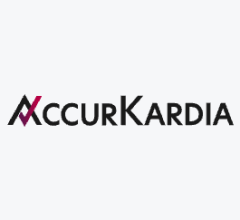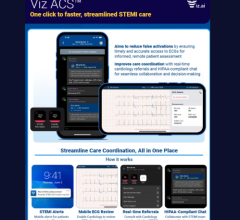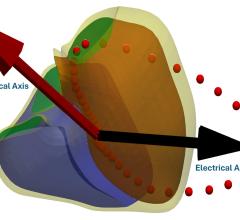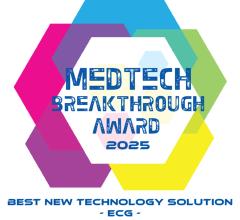
Getty Images
June 14, 2023 — Vigorous exercise does not appear to increase the risk of death or life-threatening arrhythmia for people with hypertrophic cardiomyopathy (HCM), according to a study supported by the National Institutes of Health. HCM is a rare, inherited disorder that causes the heart muscle to become thick and enlarged and affects 1 in 500 people worldwide. It has been associated with sudden cardiac death in young athletes and other young people. However, the study, published in JAMA Cardiology, found that people with the disease who exercise vigorously are no more likely to die or experience severe cardiac events than those who exercised moderately or not at all.
The observational study, the largest and most extensive to explore the relationship between HCM and exercise, was funded by the National Heart, Lung, and Blood Institute (NHLBI), part of NIH, and questions restrictions from exercise that are often recommended for anyone who has the disease.
“Based on these data, we’re learning that we don’t need to universally restrict HCM patients from participating in vigorous exercise, something that’s so important to all of us,” said Rachel Lampert, M.D., a professor of medicine at Yale School of Medicine in New Haven, Connecticut, one of the principal study authors, and a practicing cardiologist who is an expert in arrhythmias in HCM.
“Individuals with this condition should talk to a healthcare provider with expertise in HCM about getting back on the field, back in the pool, and back on the court, if that’s what they want to do,” Lampert added. “Getting an expert evaluation is key to determining degree of risk for all HCM patients, and critical before going back to play.”
HCM can make it harder for the heart to pump blood because the thickened ventricles (the lower chambers of the heart) become too stiff. This can cause some people to experience shortness of breath, chest pain, fatigue, and, more seriously, a life-threatening irregular heartbeat, known as arrhythmia. In rare cases, HCM can cause sudden death. The condition is typically managed with medications or the use of surgically implanted devices such as an implantable cardioverter-defibrillator (ICD), which can detect an arrhythmia.
Recommendations to restrict all exercise for most people with the disease have been based mainly on an abundance of caution in the absence of specific data. Large, detailed, multiyear studies on the health risks of exercise in people diagnosed with HCM have been lacking, until now.
For the study, the researchers recruited 1,660 people who either had HCM or the gene for HCM but had not yet manifested the disease (8% of the total). They ranged from ages 8 to 60 and were recruited from 42 high-volume HCM medical centers in the United States and other countries, including the United Kingdom, Canada, Australia, and New Zealand. About 60% of participants were male. The study excluded people who could not exercise for established medical reasons, such as those awaiting heart transplantation or with severe asthma.
The participants were divided according to self-reported exercise levels based on a physical activity questionnaire used in research studies. About 15% of the participants reported being sedentary, 43% said they did moderate exercise, such as brisk walking, and 42% said they did vigorous exercise, such as running or fast swimming. The researchers then followed the groups for about three years and looked at the occurrence of four main cardiovascular events during that period: sudden deaths, resuscitated sudden cardiac arrests, arrhythmic syncope (which can include fainting or passing out), and appropriate ICD shocks.
To simplify these measurement outcomes, the researchers used a statistical formula that measured a composite of these four events. The researchers found that 77 participants, or 1.5% per year, who reported exercising vigorously died or had severe cardiac events – the same percentage as those who exercised moderately or described themselves as sedentary. The outcome was similar for competitive exercisers (39% of the vigorous group) and for a subgroup of 42 young people who participated in interscholastic competitive sports such as baseball, track, soccer, and basketball.
“This finding is significant and provides a measure of reassurance that exercise may be safe for persons with HCM,” said Patrice Desvigne-Nickens, M.D., a medical officer in the Heart Failure and Arrhythmias Branch in NHLBI’s Division of Cardiovascular Sciences. “However, we stress that individuals with the condition should not be exercising until they’ve first had an evaluation by a provider with expertise in HCM about their overall risk of sudden cardiac death. It is important to know that all patients with HCM could potentially be at risk for sudden death.”
This study was supported by grant 1R01HL125918 from NHLBI. Preliminary results of the study were previously described during a meeting of the American College of Cardiology in March.
For more information: www.nhlbi.nih.gov


 January 15, 2026
January 15, 2026 









